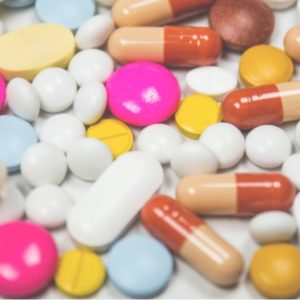
Key Points
- Have a list of your medications (doses and timing)
- This includes non pharmaceutical medications, over the counter medications, natural therapies, contraceptive medication, injectable, topical (creams) and inhalers (puffers).
- Please also make a list of your allergies and intolerances
- Please liaise with your surgeon, anaesthetist, GP and the hospital to confirm if there is to be any adjustment to your medications prior to your procedure. Key medications to be aware of include
- Blood thinners
- Diabetic medications
- Pain relief medications
- Continue your other normal medications with a small sip of water
- Fasting times are per the surgical team
Overview of medications
Most medications are advised to continue right up to and including the day of surgery.
If a patient misses their medications on the day of surgery, the procedure sometimes has to be cancelled for example, blood pressure medications are usually continued at normal doses and times to ensure that the blood pressure remains as normal as possible during the procedure. If these medications are missed, the blood pressure may become very high, increasing the risk of stroke and of bleeding.
Note that this is general advice, and you should discuss with your doctor in plenty of time before the procedure so you know the specific tailored advice for your particular medications and conditions.

There are some medications which should not be taken on the day of surgery.
Blood thinning medications work by altering how easily your blood is able to clot. If you have an operation, the team want your blood to be able to clot relatively easily to avoid having a lot of blood loss/bleeding. There is a very careful balance to be made to ensure you still have the therapeutic effect from the treatment (which is why it was prescribed to you in the first place, eg to prevent a clot in the blood vessels of the heart) but do not have a high risk of bleeding during the procedure. This can take a few weeks to manage, so discuss it with your team sooner than later.
Diabetic medications are utilised to help better control blood glucose levels. When you are undergoing a procedure with fasting prior to surgery as well as a potential delay to recommencing your normal intake of food and drink, your glucose levels are likely to be altered.
Talk to your team team in advance to get tailored advice on what to do with your medications while preparing for the surgery.
Your blood sugar will need to be closely monitored prior to, during and after the procedure.
If you are already on large doses of pain killers, this does have a bearing on your procedure and recovery. Your pain control during this time may be more difficult to manage. One strategy which can increase the likelihood of successful surgery is a pre procedure adjustment/reduction of your strong pain killing medications. This can take time to achieve. It is important to liaise with the team managing your underlying pain so that they can prepare for your procedure and set plans for your recovery.
Fasting
Fasting preoperatively is to minimise the risk of stomach content entering the lungs whilst under anaesthesia or sedation. This is a rare but potentially disastrous complication. Surgery will be delayed if fasting has been inadequate to minimise the risk of such. The times will be adviced by the surgical teams based on the list order in order to reduce excess fasting.
Clear Fluids such as water, black tea or coffee, clear (non pulped) juices – 2 hours
Food, milky or pulped drinks – 6 hours
Breast milk in UNDER 1 year olds – 4 hours
Avoid alcohol, minimise other sedative medications (eg strong painkillers which may impair normal stomach emptying.